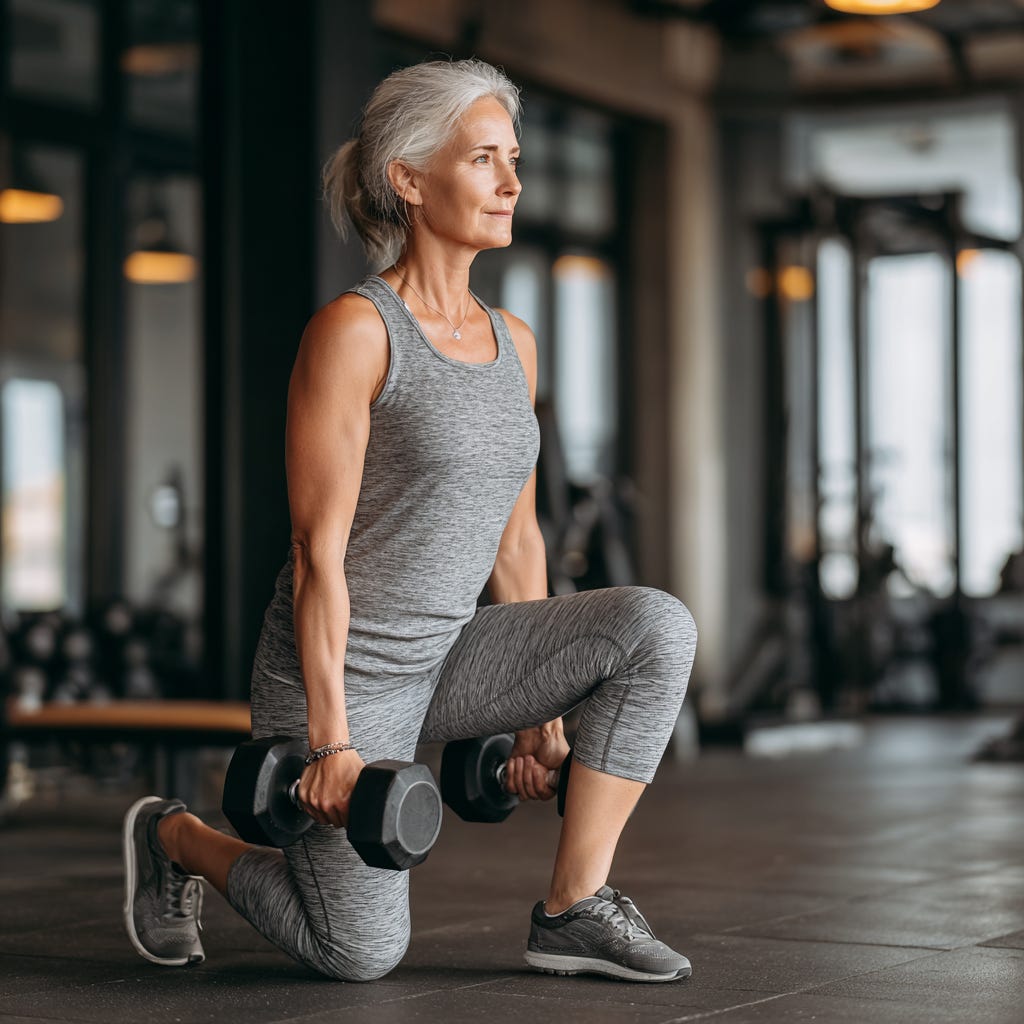The One Exercise Type That Outperformed Expectations for Aging Brains and Bodies
How eight simple resistance exercises transformed sleep quality by 36% and slashed depression symptoms in older women.
Could hitting the weights be the secret to sleeping better and feeling mentally sharper as you age? This massive study found that resistance training might be the game-changer women need for physical and mental wellness later in life. This randomised controlled trial examined how 12 weeks of resistance training impacts sleep quality, mental health, cognitive function, and physical capacity in older women, specifically comparing those who started with good versus poor sleep quality.
Key Points
Design and Methods
The researchers recruited 160 older women (average age 69.2 years) and randomly divided them into resistance training and control groups. Each group was split based on initial sleep quality, creating four subgroups: Poor Sleep RT, Good Sleep RT, Poor Sleep CG, and Good Sleep CG.
The supervised resistance training program lasted 12 weeks and included eight exercises performed with 8-12 repetitions using progressive loading. Participants trained regularly under professional supervision to ensure proper form and progression.
The Global Flourishing Study
Ever wondered what truly helps people thrive across the globe—and whether your background, relationships, or even childhood experiences shape your chances of flourishing? The Global Flourishing Study (GFS) tackles this big question, revealing surprising patterns in well-being across 22 countries and involving over 200,000 people.
Move to Live Longer: The Cellular Science Behind Lifelong Strength
So, how exactly does exercise slow aging and fight off diseases? This study decodes the real reasons why movement keeps us stronger, sharper, and resilient, all the way down to our cells.
Results
The results were particularly striking for women who started with poor sleep quality. In the Poor Sleep RT group, sleep quality scores (measured by the Pittsburgh Sleep Quality Index) dramatically improved from 7.26 to 4.61 - a 36% improvement that brought them into the "good sleep" range.
Mental health benefits were equally impressive across both resistance training groups. Anxiety levels, measured by the Beck Anxiety Inventory, dropped significantly in the Poor Sleep RT group from 6.40 to 2.65 - a 58% reduction. Depression symptoms also decreased substantially in both resistance training groups compared to controls.
The study also found meaningful improvements in cognitive performance and functional capacity, suggesting that resistance training provides comprehensive benefits beyond just physical strength.









